Edward Said: Legacy Revived
Edward Said touched on many discourses relevant today, because his career is rooted deep into the most pressing political concerns of today. To say metaphorically, Edward Said is not yet dead, as there is a continuum of his intellectual career through his contemporaries, students and fans. We array here the reflections of some outspoken critiques of empire today, by reproducing their statements and video talk (LINK to Video article). In the video session, you can read a detailed summary of their talks. The statements below are all gleaned from articles and books (with citation and courtesy)
Noam Chomsky (1928-)
Though not so reviled by the establishment as Edward, we can see in Chomsky the MIT linguist, the continuation of Edward’s critique of the US foreign policy in the Middle East. According to Najila Said, Chomsky was a close friend of Edward who frequented the latter’s home, discussing and debating many current issues and topics.
Edward Said is a very honorable representative of the “intellectual” in the sense of the term that he defines. That is his proposal as to how the term should be used. It surely does not describe those who are called “intellectuals” in standard usage, as he would be the first to agree. One can neither agree nor disagree with a terminological proposal, as long as it is clear that it is just that: terminological. As to whether those who fit the common meaning of the term “intellectual” should act in the manner that Said prescribes, that’s another question. Needless to say, I agree with him that they should, and that they commonly do not.
Intellectuals (in the standard sense of the term, not Said’s prescriptive sense) are the people who write history. If the authors and custodians of history turn out to have an attractive image, it is only reasonable to look beyond and ask whether the image they construct is accurate. I think such an inquiry will reveal a rather different picture: namely, it will reveal a very strong tendency for the intellectuals who are respected and privileged to be those who subordinate themselves to power.
To use the terms that are reserved for official enemies, it is the commissars and apparatchiks, not the dissidents, who are respected and privileged within their own societies. The observation, I am afraid, generalizes broadly. To go back to a moment of Western civilization remote enough in time so that we should be able to look at it dispassionately, ask what happened during World War I. What was the typical behavior of respected intellectuals in Germany, England, the United States? What happened to those who publicly questioned the nobility of the war effort, on both sides? I do not think the answers are untypical.
(On Intellectuals and Their Roles)
http://www.chomsky.info/interviews/20010527.htm
Talal Asad (1933-)
If an organic intellectual’s role is to expose the pomp of power from the glamorous and commonsensical terms deployed the power that be, Talal Asad is one. Thirty four years back, he wrote a critical review of Edward’s masterpiece Orientalism in English Historical Review, which is cited as one of the key secondary resources to put Edward in perspective. The 81 year old anthropologist at the City University of New York has taken over the baton of the critique of power from Edward to probe in a deeper and more incisive manner the workings of power deployed under the terms such as secularism.
“I remember talking once a long time ago with Edward Said about empire and how it might be defeated. We were just sitting and having coffee, and at one point I responded to some of his suggestions by saying, “No, no, this won’t work. You can’t resist these forces.” So he demanded a little irritably: “What should one do? What would you do?” So I said, “Well, all one can do is to try and make them uncomfortable.” Which was really a very feeble reply, but I couldn’t think of anything else. But it doesn’t follow from a pessimistic outlook that one just has to accept things as they are and ask fellow anthropologists to do the same. In any case, I’m very much against the kind of involvement you mention, making things smoother for empire.”
(What should do against the power?)
http://blogs.ssrc.org/tif/2011/08/03/the-suspicious-revolution-interview-with-talal-asad/
Gayatri Spivak (1942-)
Born in Bengal, India, Gayatri Spivak is a literary theorist, philosopher and activist noted for having translated Jacques Derrida’s Of Grammatology into English. Her Can the Subaltern Speak is considered as the seminal text of post colonialism, which is always talked of as being a legacy of Edward Said. Being a professor at Columbia University, she was a close friend of Edward and his wife Miriam. She is involved in activism for the welfare of children in the rural India.
In December of 1985, it was his fiftieth birthday.Mariam (Said) was cooking ameat dish in the kitchen. I had come in from out of town hoping I could have lunch with Edward. “See if you can get him to go to lunch,” said Mariam. “It is his fiftieth birthday. He is so angry at being fifty that he refuses to go to dinner with me.” Of course we did not go to lunch. I exchanged a few pleasantries with a gloomy Edward and went off to eat alone.
When I think of that day now I also think of the way he acknowledged his last, long, drawn-out illness. I remember his son, Wadie, mentioning that when speech left him, he was still rolling his eyes humorously at the moaning and groaning of the patient in the next bed. This stark contrast of impatience with friends and family, combined with great courage, was a characteristic of Edward Said.
(Personal notes) http://criticalinquiry.uchicago.edu/uploads/pdf/Spivak,_Thinking_about_Edward_Said-_Pages_from_a_Memoir.pdf
Tariq Ali (1943-)
Tariq Ali’s obituary of Edward Said is numbered as one of the best. Also his collection of interviews with the thinker titled Conversations with Edward Said (2005) is considered as one of the best interviews with Said. Usually, Left intellectuals influenced by Marx resist the influence of Said, as the latter has questioned the Marxian view of power and imperialism as being in the Orientalist frame of reference. However Tariq Ali is always open to and vigilant against the inner workings and dynamics of power and he found in Said revolutionary ideas about the discourse of imperialism, which he extends to the imperial forces of today
“Edward Said was a longstanding friend and comrade. We first met in 1972, at a seminar in New York. Even in those turbulent times, one of the features that distinguished him from the rest of us was his immaculate dress sense: everything was meticulously chosen, down to the socks. It is almost impossible to visualize him any other way. His quarrel with the political and cultural establishments of the West and the official Arab world is the most important feature of Said’s biography. With his death, the Palestinian nation has lost its most articulate voice in the Northern hemisphere, a world where, by and large, the continuous suffering of the Palestinians is ignored. For official Israelis, they are untermenschen; for official Americans, they are all terrorists; for the venal Arab regimes they are a continuing embarrassment. In his last writings, Said vigorously denounced the war on Iraq and its many apologists. He argued for freedom, from violence and from lies. He knew that the dual occupation of Palestine and Iraq had made peace in the region even more remote. His voice is irreplaceable, but his legacy will endure. He has many lives ahead of him.”
(On his Legacy)
http://newleftreview.org/II/24/tariq-ali-remembering-edward-said
Hamid Dabashi (1951-)
In 2008, Hamid Dabashi wrote Post Orientalism, which carries the debates initiated by Orientalism to refer to a time beyond the immediate context of Orientalism. The blurb of the book says: “The insights of Edward Said in “Orientalism” went a long way in explaining conditions of domination and representation from the classical colonial period in the 18th and 19th century to the time that he wrote his landmark study in the mid 1970′s. Though many of his insights still remain valid, Said’s observations need to be updated and mapped out to the events that led to the post-9/11 syndrome. Dabashi’s book is not as much a critique of colonial representation as it is of the manners and modes of fighting back and resisting it.” Iranian-American Professor of Iranian Studies and Comparative Literature at Columbia University in New York City, Dabashi is one of the fearless critics of imperialism which operates through the dyadic processes of open aggression and knowledge production
The fact is that when today I think of Edward Said and the more than a decade that I was fortunate to know him personally as a friend and a colleague here at Columbia, my paramount feeling is not a sense of loss – but a sense of suspension. Some people, it seems to me, never die for those whose moral and political imagination is organically rooted in their living memory. For me at least, the temporal timber of our politics has frozen ever since that fateful morning of September 24, 2003, when Joseph Massad called me to say Edward had taken his last breath. I had just received the news of my own younger brother Aziz having passed away – so the sense of loss of a brother, of two brothers, a younger and an older brother, is frozen in time for me, framed as it were on a mantelpiece that defines the focal point of where I can call home.
(On the day Edward breathed last)
Cornell West (1953-)
Najila Said testifies in her memoir that her Princeton professor Cornel West was one of Edward Said’s ‘nine billion students, a family friend who sometimes came over for drinks.’ He is professor of philosophy, having worked at Harvard-where he had fight with America’s leading economist Lawrence Summers-and Princeton; an activist being at the forefront of Wall Street agitations; writer and theoretician who contributed immensely to political science Africana philosophy, existentialism, Marxism and theology with his titles such as Black Theology and Marxist Thought, Prophesy Deliverance! An Afro-American Revolutionary Christianity, Race Matters, Beyond Eurocentrism and Multiculturalism, Democracy Matters: Winning the Fight Against Imperialism (2004). He has acted in and written commentary on the Matrix trilogy.
Edward Said was the last great humanist. He was a literary genius. He was an intellectual giant. He was part of a tradition that goes from Erasmus to Vico, from Swift to Cesare, from Auerbach to Lionel Trilling. As a humanist, he was critical of all forms of terrorism but he was fundamentally concerned about trying to convince persons to be critical of all forms of authority, all forms of dogma, all forms of system, all forms of orthodoxy. And so his critique of terrorism was a universal critique across the board. He was rooted in the struggle of Palestinian people as he comes out of that rich Palestinian tradition. He was an American original, an Arab original, and a Palestinian original, but he stood on high moral ground.
(About his moral ground)
http://www.npr.org/programs/tavis/transcripts/2003/oct/031001.said.html
Judith Butler (1956- )
Philosopher and gender theorist Judith Butler is the Maxine Elliot Professor in the Department of Rhetoric and Comparative Literature at the University of California. A vocal critic of Israeli politics and Zionism, she has written of late ‘Parting Ways: Jewishness and the Critique of Zionism’ and was attacked for her support, albeit with criticism, of Hezbollah and Hamas. An author of more than 20 books, she is an activist standing for the rights of Lesbian-Gay-Bisexual and Transgender people.
Edward has written his works many decades ago. Yet they speak about the present time. They speak about what the present time might be, how we understand ourselves now. Alongside memorializing him, there should be a counter-memorializing that should happen not by dishonouring him but should happen by living in the present by rethinking his works in the context of our own time and of various times. About literature, representations of Palestine and dispossession, exile he asked us to pay attention to form, which must be fragmentary and protean, saying that there is no single narrative we can tell, no single motive we can tell. And it must interrupt certain dominant narratives.
http://www.columbia.edu/cu/palestine/programs/featuredevent.html
(About his counternarrative)
Joseph Massad (1963-)
When Israel and its cronies rock the world with its aggression on Palestinians, we still hear Edwars speak against it through Joseph Massad, one of the most outspoken students of Edward, whose Desiring Arabs, a book which closely follows the path of Orientalism by critiquing the western notions of Arab sexuality, was submitted to the loving memory of his teacher. Professor of Modern Arab Politics and Intellectual History in the Department of Middle Eastern, South Asian, and African Studies at Columbia University.
Said insisted that the intellectual be an amateur, not a professional. He objected to the professional intellectual who views her or his work “as something you do for a living, between the hours of nine and five, with one eye on the clock, and another cocked at what is considered to be proper, professional behavior-not rocking the boat, not straying outside the accepted paradigms or limits, making yourself marketable and above all presentable, hence uncontroversial and unpolitical and ‘objective.’ The intellectual amateur, for Said, is “someone who considers that to be a thinking and concerned member of a society one is entitled to raise moral issues at the heart of even the most technical and professionalized activity as it involves one’s country, its power, its mode of interacting with its citizens as well as with other societies.” The intellectual as amateur, he insisted, should be able to go beyond the professional routine of doing what she or he is supposed to do by asking, “why one does it, who benefits from it, how can it reconnect with a personal project and original thoughts.”
(On The Importance of Being an Amateur)
From his Essay: The Intellectual Life of Edward Said


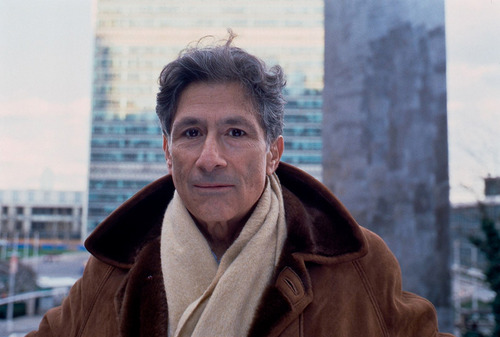

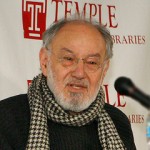

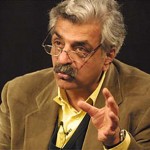
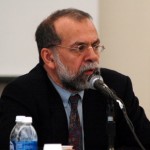
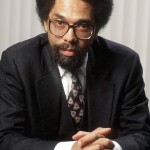

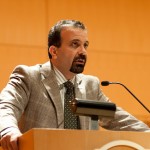




















Connect
Connect with us on the following social media platforms.